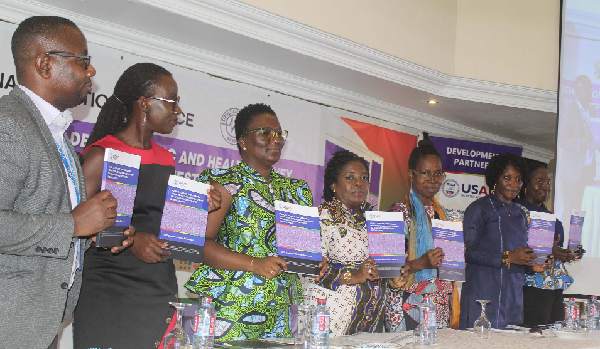
First sex nightmare for youth - Study reveals
A significant proportion of youth surveyed experienced high coercion in their first sexual adventure, a study on young people’s encounters with first sex in the Ashanti and Northern regions has revealed.
Advertisement
The study, which collected qualitative data from 154 young women and men from 15 to 29 years, said the highly coercive first sexual experience happened via rape, severe pressure and manipulation.
High coercion sex is defined in the study as using physical force or attack, severe pressure and feelings that one could not refuse sex. Moderate sex is defined in the study as feelings of manipulation, moderate pressure and refusal of sex carried consequences, while low or no coercion is defined as wanting to have sex or was not totally sure, modest or no pressure and could refuse sex with no consequences.
It said all those who experienced high coercion sex were females, while the men often reported feeling more social pressures.
The findings of the study were made known at the dissemination of the 2022 Ghana Demographic and Health Survey report on women empowerment, domestic violence, young people’s experience of first sex, marriage and sexuality.
The report, which was launched last Tuesday, is a qualitative study of the 2022 DHS report.
Sexual reproductive health
A senior lecturer at the University of Education, Winneba, Dr Akosua Owusu-Ansah, who made the findings of the report known at the programme, said the study revealed that sexual and reproductive health (SRH) was low among the youth at first sex, explaining that many of the respondents did not have a clear idea of the risk of pregnancy at first sex and even fewer knew or worried about sexually transmitted infections.
She said for the majority of the young people included in the study, first sexual experience took place within the context of established intimate relationships, although roughly one in five first had sex with someone they were not in a relationship with at the time.
Of those in a relationship, she said, most said they were in established relationships but not formally married.
She said for all the respondents from Ashanti Region and men in the Northern Region, they reported that they had sex first before marriage.
This is in contrast to over half of Northern women who were married at the time they first had sex.
Dr Owusu-Ansah said the study identified that communication and relationship about sex around the time of first sex was limited, explaining that sex was seen as a starting point for more open communication about sex and contraception.
For those in established relationships, she said, the report showed that they talked about sex at an earlier time, compared to those not in a relationship with the person with whom they first had sex.
“The discussions about sex were typically initiated by men, although much of the communication about this was non-verbal,” she said.
Motivation for first sex
On the motivation for first sex, she said the study identified that many respondents who had first sex, in the context of a romantic relationship, felt that sex was a way to express love and commitment to their partner, while some felt pressure to prove their commitment to their partner through having sex with them.
She said for those who had first sex within marriage, many felt that the marriage was a demonstration of love and commitment and, therefore, led to sex, while others felt pressure to procreate in order to establish their marriage.
On the implications of the study, she said it meant that overall, the youth in those two regions were not well prepared for a healthy transition to adulthood; open and clear communication about sex was very limited, especially for first sex, and relationship was very important in shaping first sexual experience.
On the way forward, she said the report recommended, among others, that focus be placed less on fear of sex and more on the general sexual health and well-being of the youth.
She asked that sex should be demystified in ways that encouraged open communication and discussion.
The Board Chairman of the Ghana Statistical Service (GSS), Dr Grace Bediako, stressed the need for society to protect children, adding that the focus should also be on boys since they were as vulnerable as girls.
A senior lecturer at the Department of Sociology, University of Ghana, Dr Doris Boateng, said it was worrying to see from the data that 15-year-olds were married, adding that no 15-year-old girl should be in marriage at that age.
A Deputy Government Statistician of the GSS, Dr Faustina Frempong-Ainguah, said women giving birth too early was not good for their health, explaining that there was a high probability of maternal mortality among such women.
“So if we are forcing children 15 to 19 years to marry, then we are setting them up for doom and to die and these are the future leaders,” she said.




